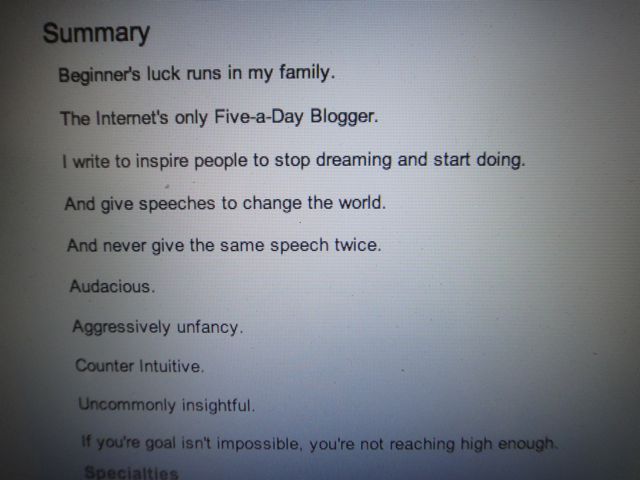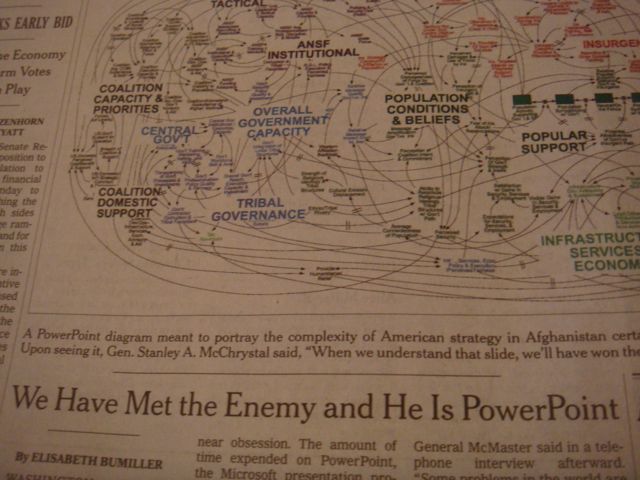
When people question you and your motives – disruptive thinking – do you see it as a gift?
Or, as a trap?
Next Blog
Disney Brand Loyalty Keynote Speaker
Five daily blogs about life's 5 big choices on five different sites.

When people question you and your motives – disruptive thinking – do you see it as a gift?
Or, as a trap?
Next Blog

The pace of change for established business professionals is the fastest we’ve ever seen in our lifetimes. Extraordinary pressure from every angle.
Uncertainty. Anxiety. Opportunity.
In the midst of chaos, lies opportunity.
Or have you forgotten?
Next Blog

“Using All We Have”, from The Houston Chronicle. We receive emails all day, everyday, right? This is one of those rare moments when I feel compelled to share, which looks lazy, because it’s a copy and paste type of post, however, the punch line is so compelling:
If you have ever been to a Perlman concert, you know that getting on stage is no small achievement for him. He was stricken with polio as a child, and so he has braces on both legs and walks with the aid of two crutches.
To see him walk across the stage one step at a time, painfully and slowly, is an unforgettable sight.
When he reaches his chair, he sits down, slowly, puts his crutches on the floor, undoes the clasps on his legs, tucks one foot back and extends the other foot forward.
He bends down and picks up the violin, puts it under his chin, nods to the conductor and proceeds to play.
By now, the audience is used to this ritual. They sit quietly while he makes his way across the stage to his chair. They remain reverently silent while he undoes the clasps on his legs. They wait until he is ready to play.
But this time, something went wrong. Just as he finished the first few bars, one of the strings on his violin broke. You could hear it snap — it went off like gunfire across the room. There was no mistaking what that sound meant. There was no mistaking what he had to do.
People who were there that night thought to themselves: “We figured that he would have to get up, put on the clasps again, pick up the crutches and limp his way off stage — to find another violin or else find another string for this one.”
But he didn’t. Instead, he waited a moment, closed his eyes and signaled the conductor to begin again. The orchestra began, and he played from where he had left off. And he played with such passion and such power and such purity as they had never heard before. Of course, anyone knows that it is impossible to play a symphonic work with just three strings.
I know that, and you know that, but that night Itzhak Perlman refused to know that. You could see him modulating, changing, recomposing the piece in his head. At one point, it sounded like he was de-tuning the strings to get new sounds from them — sounds they had never made before.
When he finished, there was an awesome silence in the room. And then people rose and cheered. There was an extraordinary outburst of applause from every corner of the auditorium. Everyone was on their feet, screaming and cheering, doing everything they could to show how much they appreciated what he had done.
He smiled, wiped the sweat from his brow, raised his bow to quiet us, and then said, not boastfully, but in a quiet, pensive, reverent tone …
“You know, sometimes it is the artist’s task to find out how much music you can still make with what you have left.”
What a powerful line that is. And who knows? Perhaps that is the way of life — not just for artists but for all of us.
Perhaps our task in this shaky, fast-changing, bewildering world in which we live is to make music, at first with all that we have, and then, when that is no longer possible, to make music with what we have left.
Next Blog

Has it ever crossed your mind?
Loyalty. Organizational loyalty. The loyalty you show. The loyalty you receive.
And even if, for what ever reason, you question your current loyalty, where else would you go to find it?
Catch 22, isn’t it?
Here’s a provocative perspective from a business contact from LinkedIn.
Click here to read David Noer’s blog post: The Necessary Paradox of Cautious Loyalty.